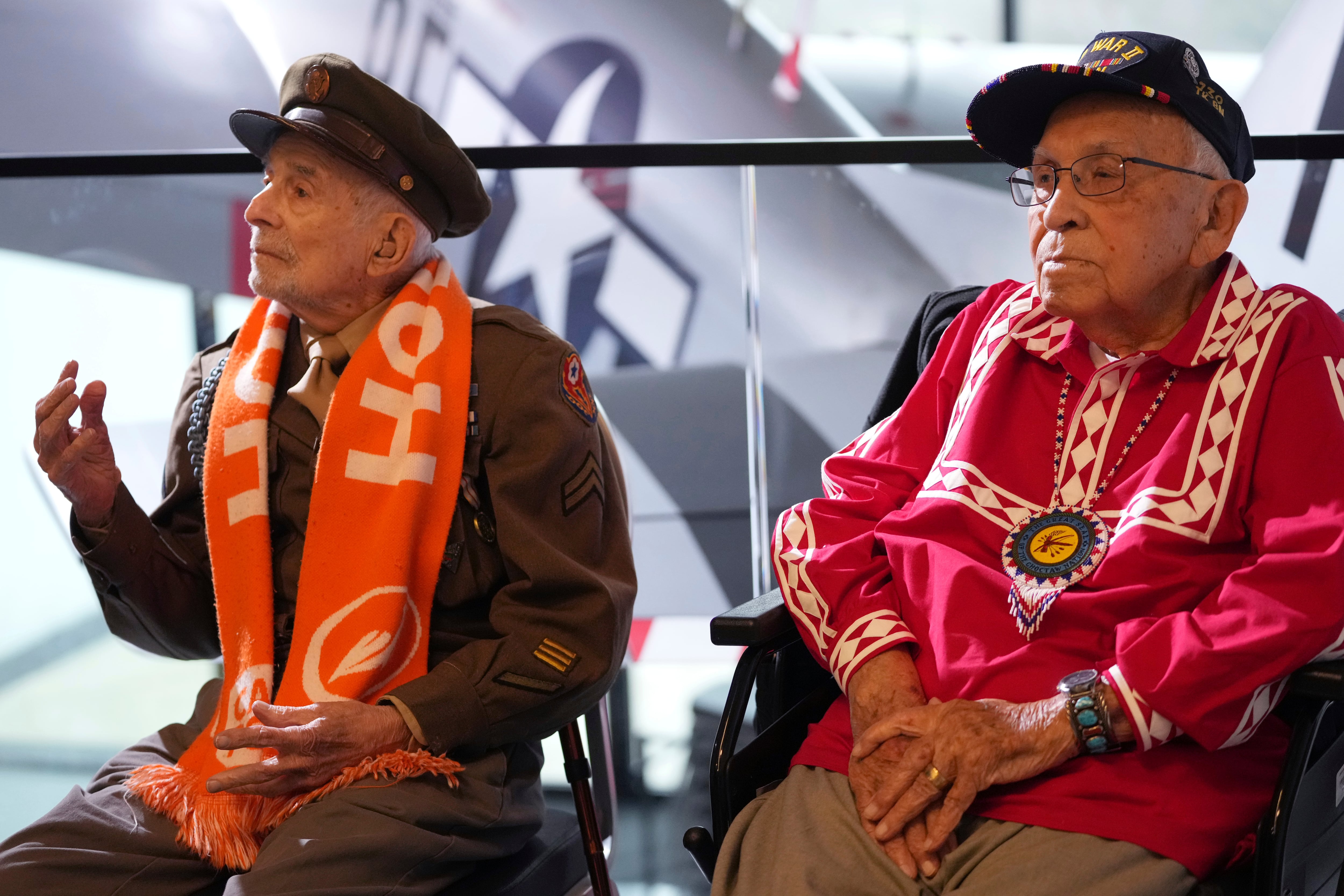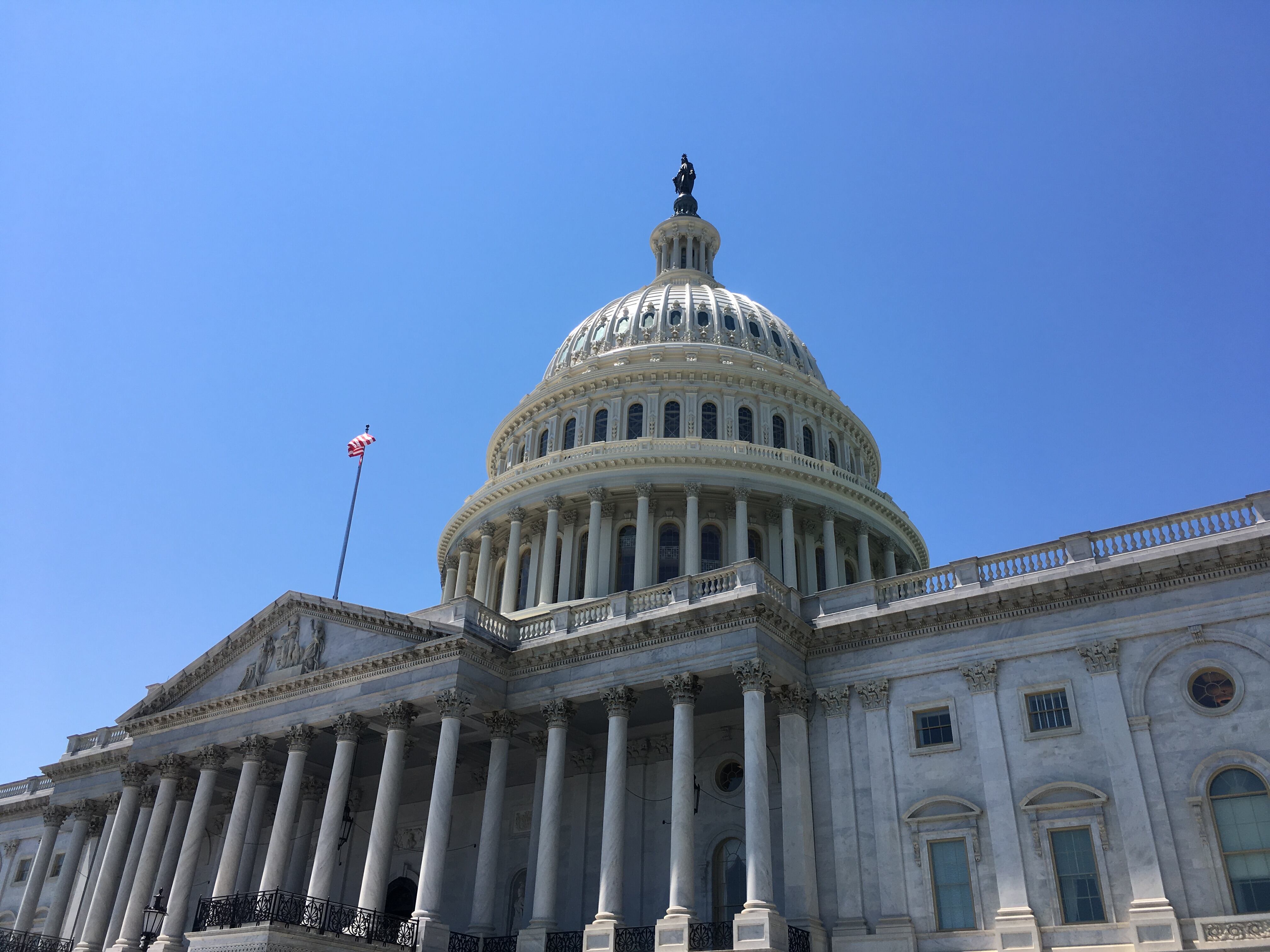BASTOGNE, Belgium — Eighty years later, World War II veteran David Marshall, has a picture in his wallet of him fighting in the snow and bitter cold in one of the defining moments of the four-year conflict — the Battle of the Bulge.
The 100-year-old vet was part of commemorations on Friday as the United States, its European allies and a dwindling number of veterans remembered the month of dramatic fighting that stopped Adolf Hitler’s last-ditch offensive and opened the way for the full Nazi defeat.
Still, beyond the ceremonies and this weekend’s events in Belgium and Luxembourg to commemorate one of the most important and deadly battles that helped decide the war, Marshall wants people to go one step beyond just remembering it.
The young should “study about the war,” Marshall said in an interview with The Associated Press. “Learn all you can about it in order to prevent any future war.”
“If you forget the past, you are not going to have a future,” said Marshal, who was in the battle working a mortar.

At dawn on Dec. 16, 1944, over 200,000 German soldiers launched an unexpected attack through the dense woods of Belgium and Luxembourg’s hilly Ardennes — Hitler’s last hope for victory.
Making the most of the surprise move, the cold, freezing weather and wearied U.S. troops, the Germans pierced the front line so deeply it came to be known as the Battle of the Bulge.
It ultimately made sure the Allied advance, started on the D-Day beaches of Normandy in June 1944, could continue right on to Berlin. Initially outnumbered, U.S. troops delayed the attack enough in fierce fighting to allow reinforcements to stream in and turn the tide of the battle by Christmas.
Beyond the overwhelming German forces, the conditions were just as tough, said Marshall.
“It was cold, wind with snow — and there were a few Germans around, you know. And it was a matter of subsisting, you know, the weather rather than the Germans. Fighting them was not the problem. Fighting the weather was the problem,” said Marshall.
Hitler had hoped the advance would change the course of the war by forcing U.S. and British troops to sue for peace, thus freeing Germany to focus on the rapidly advancing Soviet armies in the east.
After the fighting in the Battle of the Bulge ended on Jan. 28, 1945, Allied forces invaded Germany, eventually leading to the Nazi surrender and the end of the war in Europe.
Germany is now an ally of the United States and its wartime partners in NATO and the symbolism was not wasted on such day.
“There’s no reason we cannot get along,” said veteran Gilbert Charleston, 101, a Choctaw Nation elder who served as a tank driver with the 739th Tank Battalion, after he shared memories over the picture with Marshall.
“If they would just take the time to be kind to each other and not try to be so possessive — help when help is needed,” he said. “I think the world would be a lot better place.”
Associated Press writer Raf Casert in Brussels contributed to this report.










